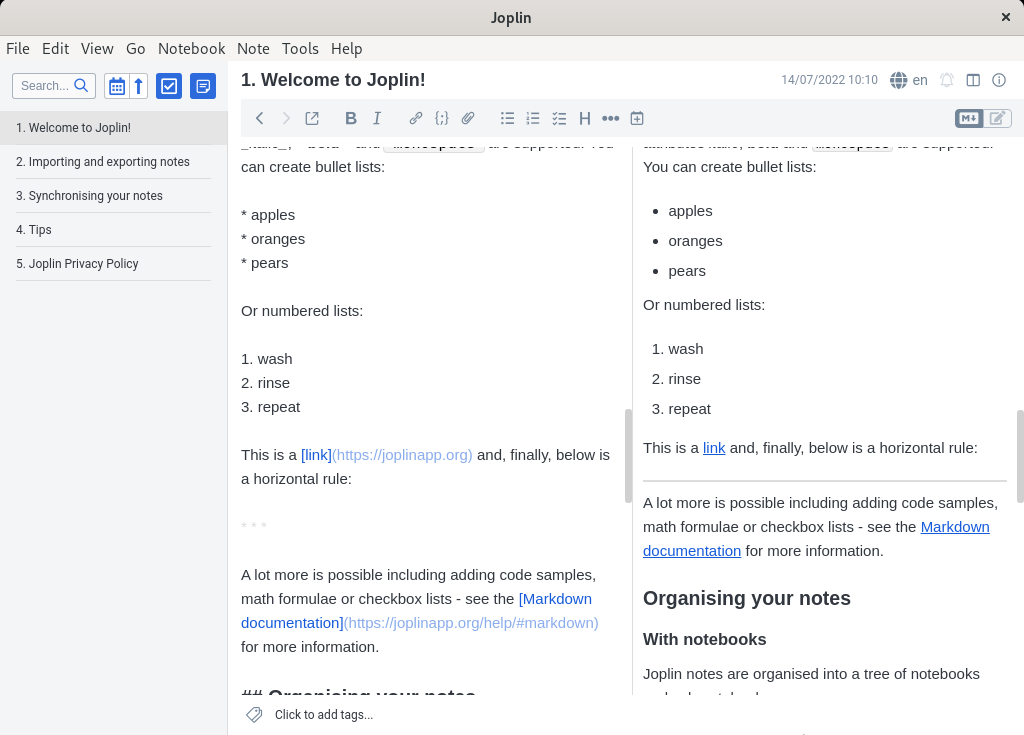
Notes are a part of any author's life. Most of my articles start with a note-taking app, which for me is usually Joplin. There are tons of note-taking apps for Linux, and the one you might be using isn’t my favorite. A recent blog post reminded me of six of them, so I compiled a list of my favorites.
Joplin

Joplin is available for Linux, Windows, macOS, Android, and iOS. I like Joplin because it automatically saves anything you add. Notes can be uploaded to NextCloud, OwnCloud, Joplin Cloud, or even closed-source services like OneDrive, Dropbox, or any WebDav app. Joplin also supports encryption.
It's also easy to export notes in various formats. It comes with eight different themes that let you customize its look.
Joplin is licensed under the MIT license. Originally released in 2017, Joplin is under continued development with a large community of contributors.
Xournal

Xournal is available for Linux, Windows, macOS, and Android. It's designed to let you create notes containing almost any media type you can imagine. It supports pressure-sensitive stylus and drawing tablets, so you can create doodle notes. You can type, draw simple vectors, import graphics, record audio, and more. You can also use Xournal to annotate PDFs, which is how I use it. It is released under a GPLv2 license and you can export your notes in a variety of formats.
Trillium

Trillium is a hierarchical note-taking application focused on building knowledge libraries. It has rich WYSIWYG editing capabilities and supports tables, images, and Markdown. It supports editing comments in source code using syntax highlighting. It is released under the AGPL license.
Trilium is available as a desktop application for Linux and Windows, as well as a web application that you can host on your own Linux server.
Gnote

Gnote is an open source note-taking application written for Linux. It was cloned by Hubert Figuière from a project called Tomboy. Like Tomboy, Gnote uses a Wiki-like linking system to allow you to link notes together.
The source code for GNote is available on GitLab. The software is GPLv3 licensed.
CherryTree

CherryTree supports hierarchical notes. In CherryTree, everything is a node. Nodes can be plain text, rich text, or syntax highlighting for various programming languages. Each node can have child nodes, and each child node has a different format.
CherryTree features rich text and syntax highlighting, and can store data in an XML or SQLite file. CherryTree can import from a variety of formats, including Markdown, HTML, plain text, Gnote, Tomboy, and others. It can export files to PDF, HTML, plain text, and its own CherryTree format.
CherryTree is licensed under GPLv3 and can be installed on Linux, Windows, and macOS.
The above is the detailed content of Common note-taking applications for Linux. For more information, please follow other related articles on the PHP Chinese website!




